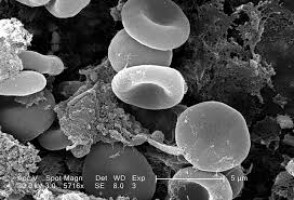
A team of scientists from The University of Texas Health Science Centre at San Antonio (UT Health San Antonio) has identified a promising new drug target for acute myeloid leukaemia (AML), a deadly blood cancer with a five-year survival rate of just 30%, according to the National Cancer Institute.
Their study, published in Cell Stem Cell in February, highlights the crucial role of a protein called paraspeckle component 1 (PSPC1) in the progression of AML.
An aggressive blood cancer, AML originates in the bone marrow and is known to disrupt the normal production of blood cells.
Treatment is difficult because patients may not respond to chemotherapy or experience a relapse of the disease.
“AML is highly diverse, with more than 70 known driver mutations,” said Mingjiang Xu, PhD, professor of molecular medicine at the Joe R. and Teresa Lozano Long School of Medicine and CTRC Council Distinguished Chair in Oncology at UT Health San Antonio’s Mays Cancer Centre.
“Even targeted therapies like IDH inhibitors can only treat a small subset of AML patients. Given this diversity, we need a uniform, one-for-all drug target to effectively treat AML.”
Xu is one of the study’s primary investigators.
Co-primary investigators include Feng-Chun Yang, MD, PhD, a tenured professor in the Department of Cell Systems and Anatomy, A.B. Alexander Distinguished Chair in Cancer Research, Mays Cancer Centre and Jianlong Wang, PhD, Columbia University Irving Medical Centre.
In mouse models, depleting PSPC1 significantly delayed AML progression and improved survival rates.
Removing PSPC1 inhibited cancer cell growth without affecting normal blood cell formation.
Xu suggests that targeting PSPC1 could provide a new treatment for AML.
PSPC1 has been found in 21 different cancer cell lines, primarily in solid tumours, playing a role in worsening or advancing the disease more quickly.
This suggests that therapies targeting PSPC1 could have broader applications in oncology, beyond just AML.
Researchers are now investigating methods to selectively inhibit PSPC1 in cancer cells while preserving its function in normal cells, potentially offering a targeted treatment with fewer side effects.
Xu states the next step is to test potential drugs that could inhibit PSPC1, significantly impacting not only AML, but also solid tumours like lung and prostate cancer by preventing metastasis, offering new hope for cancer patients.
To read the full story, click here.
Source: University of Texas Health Science Center at San Antonio
The World Cancer Declaration recognises that to make major reductions in premature deaths, innovative education and training opportunities for healthcare workers in all disciplines of cancer control need to improve significantly.
ecancer plays a critical part in improving access to education for medical professionals.
Every day we help doctors, nurses, patients and their advocates to further their knowledge and improve the quality of care. Please make a donation to support our ongoing work.
Thank you for your support.